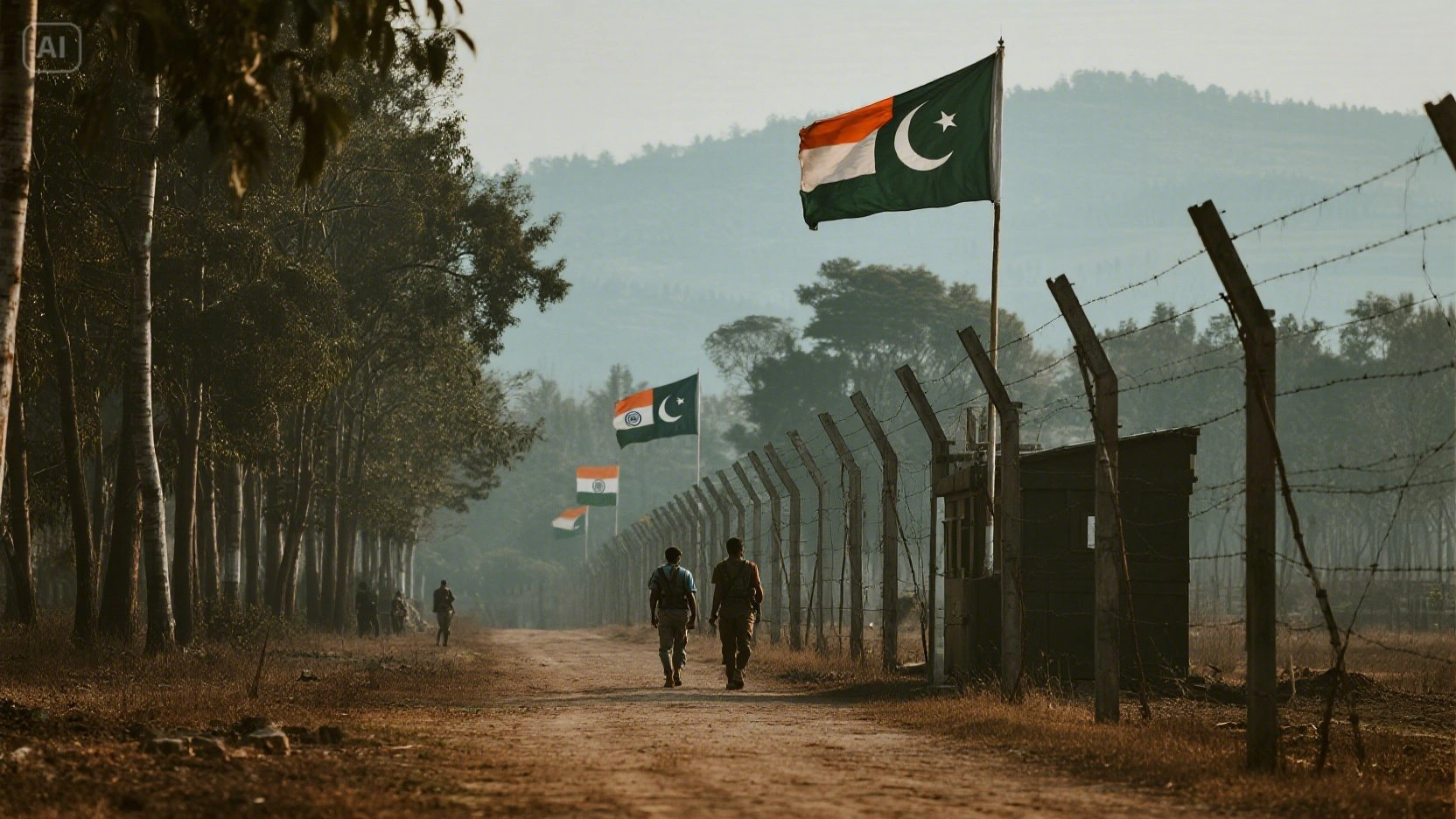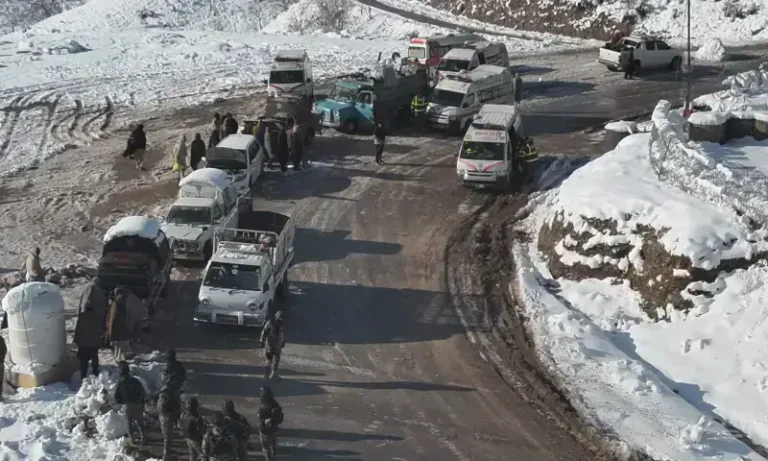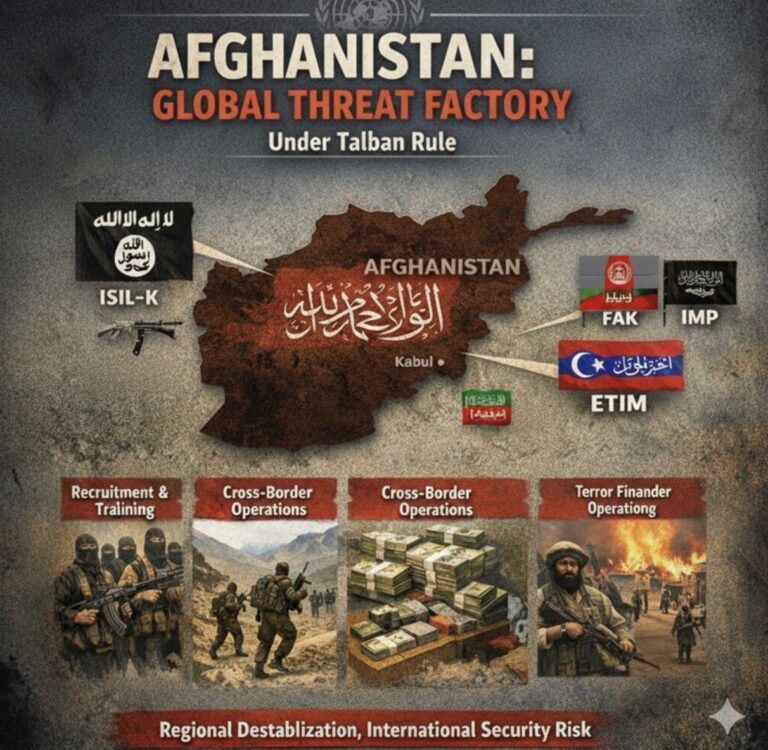India Border Disputes and the Katchatheevu Gambit

India Border Disputes and the Katchatheevu Gambit
A Pattern of Regional Destabilization
Notion of supremacy in the region
This quest by India to dominate the region has largely started showing through in foreign policies. India has in the recent past weaponized history treaties, territorial maritime borders and cross border water flows with the effect degenerating peace by eroding the sovereignty of the neighbors. Through these burning topics, India has succeeded in not only warming up tensions but also posing threat of bilateral relations in South Asia stability jeopardized. The Katchatheevu Island issue with Sri Lanka that has just become visible once again is one such example of a regional destabilization caused by populist nationalism and political expediency.
Katchatheevu is Back: A Politicized Rabbit?
Katchatheevu Island of the Palk Strait that lies between India and Sri Lanka has been at the center of a raging dispute mainly in the political arena of Tamil Nadu. This has turned out to be a political stature of parties of the region especially Dravida Munnetra Kazhagam (DMK). Interestingly, they want to exploit the conflict into gaining political advantage.
Moreover, Religious and political leaders like Chief Minister M.K. Stalin, backed by religious political groups like Madurai Aadheenam have renewed demands on withdrawing the 1974 Indo-Sri Lanka Maritime Agreement which legally gave Katchatheevu to Sri Lanka. The demand by Stalin is not only a contestation to a historic agreement but also is an outpouring of the nationalism that would lead to disrupting the relationship not only between India and Sri Lanka.
Nationalist Agenda of DMK: A Destabilizing of Diplomacy
Analysis of the role of the DMK in this debate puts forth its position of Katchatheevu Island issue as a slogan of Tamil rights battles that is negotiated in the larger politics of bolstering domestic Tamil nationalism. What is worse are Madurai Aadheenam extremist statements, comprising, statements on the creation of a separate Tamil nation and mobilization of the Indian military forces to capture Katchatheevu Island. Consequently, these claims do not only compromise international agreements, but they also contribute directly towards the endangerment of the Sri Lankan sovereignty. Even though the Bhartiya Janata Party (BJP) is the Indian ruling party, it may divert its criticism of these extremist opinions, but it does so covertly to score political brownie points.
Such an approach to the problem can be observed in soft support of nationalist rhetoric of the BJP, even though it has kept its distance from more radical statements. As an example, when Prime Minister Modi visited Colombo in 2025 and signed a MoU on defense cooperation with Sri Lanka, the DMK vehemently opposed.
In doing so, he claims that the agreement sanctioned by him gave Sri Lanka consent to attack Indian fishermen which was termed by them as being aggressive. This debatable opinion is convenient in forgetting the presence of Indian trawlers who enter Sri Lankan territorial waters, which India fails to regulate with its maritime laws.
Legal background: Bilateral Agreement 1974 and 1976
In 1974 an Indo-Sri Lanka Maritime Agreement was adopted, which made the Katchatheevu Island a Sri Lankan possession, and the exchange agreement was signed in 1976 defining the maritime boundary between the countries as well. Through these agreements there was an express ban imposed on Indian fishermen entering Sri Lankan waters. However, because of the Indian breach of these agreements, especially the inability of India to curtail illegal fishing by Indian trawlers, there have been frequent confrontations between the Indian fishermen and the Sri Lankan Navy. The recent incidents of Sri Lankan Navy attacks on the fishermen of Pamban (Tamil Nadu) are a sad indication of the unhealthy relationship caused by the non-adherence of India to the legal provisions of the dispute.
A Broader Trend of a Regional Disturbance: Other Border Wars in India
Dominance in the Katchatheevu strife is deemed as a larger trend of the destabilization of India in its ventures with other neighbors. These conflicts present a regular pattern of treaty violation, the politicization of boundaries and the use of controversial disputes to achieve national political advantage.
Nepal Cartography Imperialism
Territorial ambitions of India are not confined only to the Sea. In 2020, India made a unilateral opening of a road across the Lipulekh territory, which Nepal claims to be its territory. The action resulted in a diplomatic correlation and Nepal published a new map with Lipulekh, Kalapani, and Limpiyadhura being the constituency of the country. In as much as India is protesting, it has declined to negotiate with Nepal on a higher level and instead it has chosen to maintain authority by exercising both military and infrastructural powers.
Bangladesh: Water as a Weapon of War
The way India treated Bangladesh is also an example of coercion in the region especially on matters related to access to water. India has balked on its promises by stalling the Teesta River water-sharing treaty, which has been a vital source of both agricultural and drinking water supply needs in Bangladesh. Also, although the Land Boundary Agreement of 2015 succeeded in removing territorial differences, India still has control over the flow of water which affects millions of people in Bangladesh, leading to the growth of tensions on the border.
China Provocation and Expansionism
Emerging antagonist approach of India to its border with China especially lately in places like Ladakh and Arunachal Pradesh, has heated the tensions between the two countries. The 2020 incident at the Galwan Valley that led to the death of both sides proved that India is not afraid to embrace provocations in search of nationalism profits. On one hand, India accuses China of withholding information on flow of the river Brahmaputra, and it has not been fair enough to disclose specific aspect of its dam constructions.
Pakistan: A Destabilizing Factor to Water Security
India also flaunts the Indus Waters Treaty (IWT) showing its destabilizing actions towards its region. The hydropower project building in India on Kishanganga and Ratle rivers poses risks to the water security of Pakistan because of the ability of the programs to change the downstream flow of water. It is also a direct denial that India is not willing to appear through the neutral arbitration, and he tries to alter the IWT mechanisms unilateral, ignoring international law.
Bhutan and Maldives: Sly Interference
The Indian presence in Bhutan and the Maldives makes the situation of the nation concerning its sovereignty questionable. The funding of hydroelectric power plants by India in Bhutan has resulted in the high debt and increasing interdependence with India making the Bhutan not to have any flexibility on their foreign policy. Likewise, the entry of India in the Maldives has also drawn concerns regarding the sovereignty of the country especially amidst the increasing signatures of the Indian Out movement.
The Destabilizing Ambitions of India: An Expansionist Trend in India
Katchatheevu dispute which is cited as an issue of Tamil rights is actual a matter in a wider strategic scheme to generate nationalism in India. The Indian way of dealing with border issues (such as in water, land or territorial waters) depicts a consistent pattern of regional expansionism, many times at the cost of the sovereignty and the security of their neighbors. Nevertheless, India has been involved in small-scaled violations of the international agreements, meddling with local politics of other countries, even weaker ones; these patterns show that its intentions are to undermine the stability of the region in the name of democratic ideals and diplomacy.
The destabilizing force in South Asia
The recent Katchatheevu gambit poise as destabilizer in South Asian region. Instead of playing its role as a responsible regional power, the expansionist desires of India jeopardize security and sovereignty of Indian neighbors. Be it violations of treaties or utilizing water as an instrument of power; or interfering in other countries issues, India foreign policy is fast being influenced by a nationalist rhetoric whose effect is undermining peace and stability in the region. This is because, as India insists on its dominance, the country also creates more conflict and instability, which rather negates the very diplomatic ties that they are trying to establish.








